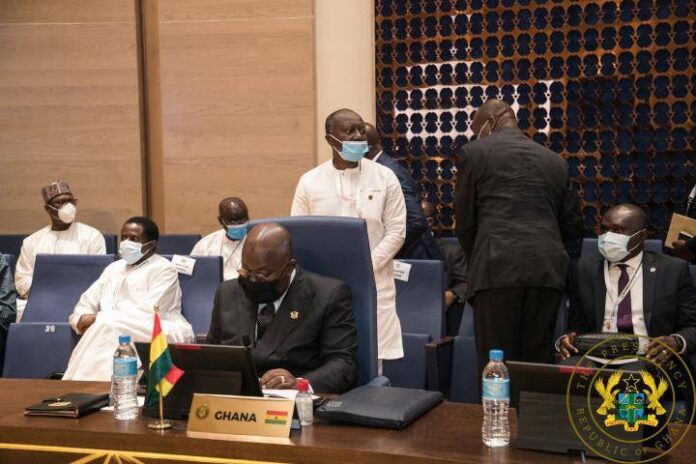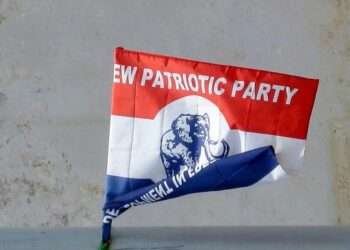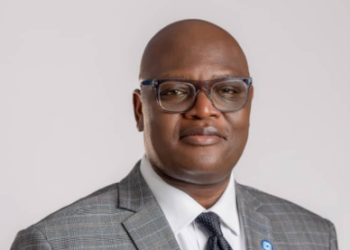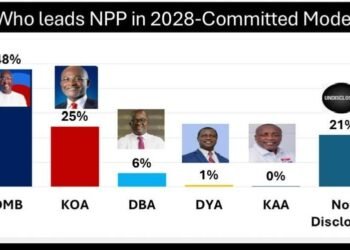The Mali crisis has necessitated the current chair of the Economic Community of West African States (ECOWAS), President Akufo-Addo to call for an end to the political instability in the country.
Speaking at a meeting with seven other ECOWAS leaders at the Peduase Lodge today September 15, 2020, President Akufo-Addo requested for a consensus in bringing life back to normalcy for Malians.
“My reason for this meeting is simple. We need to bring finality to our deliberations on Mali. That country can no longer afford any delay in putting a responsible government in place, following the event of 18th August when our colleague, His Excellency Ibrahim Boubacar Keita who was the object of a coup d’état in his country. The terrorists are taking advantage of the situation in Mali to flex their muscles even more.”
Leaders from countries such as Togo, Nigeria, Benin, Niger, Senegal, Ivory Coast, Guinea, and Ghana expressed their confidence in ferreting out ways to stabilize the political unrest with the help of the military Junta in Mali.
“Today is supposed to be the day when the military Junta in Mali is to put in place a government which should respond to the criteria we set out at our last summit of 28th August 2020; that has not been done.
“The circumstance of life in Mali today requires that closure be brought to the matter now and it is my belief that a face to face meeting between us representing the ECOWAS community and the military leaders in Bamako provide us with the best opportunity to find a firm resolution.”
In spite of the brewing tensions in Mali, President Akufo-Addo lauded the leaders of the Junta for being malleable to the invitation of ECOWAS and participating in deliberations of restoring calm to the country.
“Fortunately, the military leaders have also responded positively to my invitation and are here to meet with us. I thought it prudent for us before meeting them to consent among ourselves and agree on a common position.”
Mali stalemate
Mali’s military junta, which overthrew President Ibrahim Boubacar Keita on August 18, had backed a charter that outlined an 18-month transition government. According to the charter, the government will be in place for 18 months comprised of 25 members, along with a transitional council representing Mali’s numerous ethnic groups.
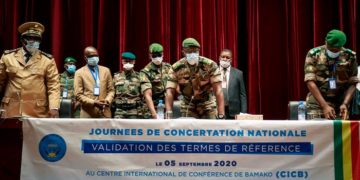
The charter allows for a president as the head of state as well as a vice president. They cannot stand for reelection after the term of the transitional government lapses and both will be selected by a council set up by the junta.
The military junta has missed the bloc’s one week ultimatum for a designated civilian leader that would head a one-year transition period. As a result, ECOWAS had stopped financial transfers into the country and closed its borders.
In spite of ECOWAS effort to end the political impasse, many Malians believe that ECOWAS did not play a constructive role in the conflict. They want to solve the problems on their own. The meeting in Accra were on the minds of many in Mali’s capital Bamako.
According to a resident in Bamako, “Mali is an important member of ECOWAS. When a coup occurs, it is normal for sanctions to be imposed. We expected this, but we ask ECOWAS to take all views into account. If we can reach an agreement, ECOWAS should support us.”

